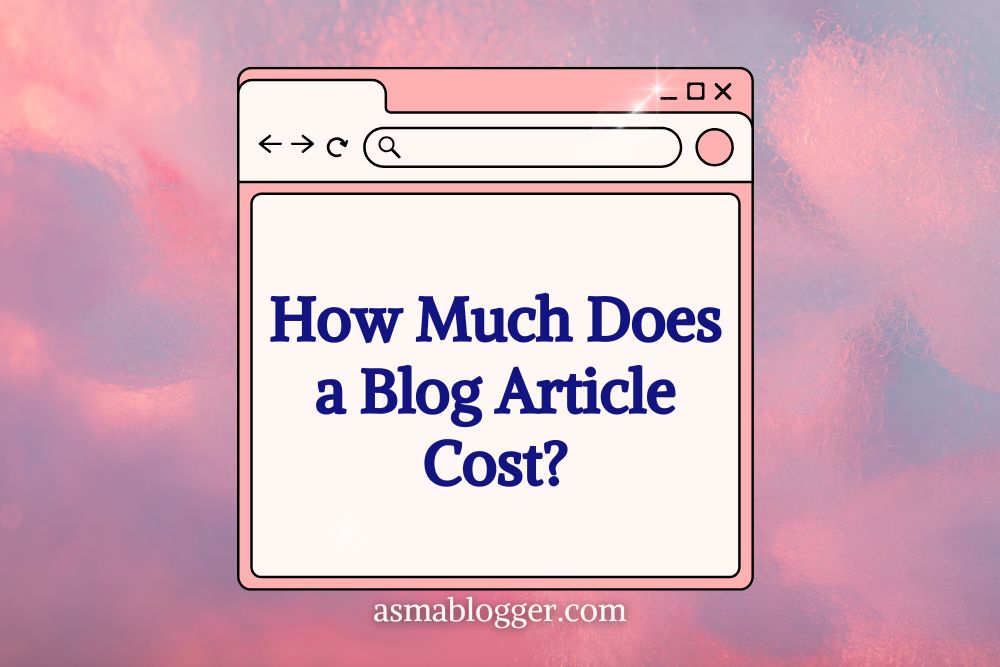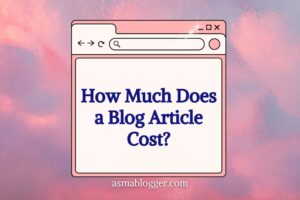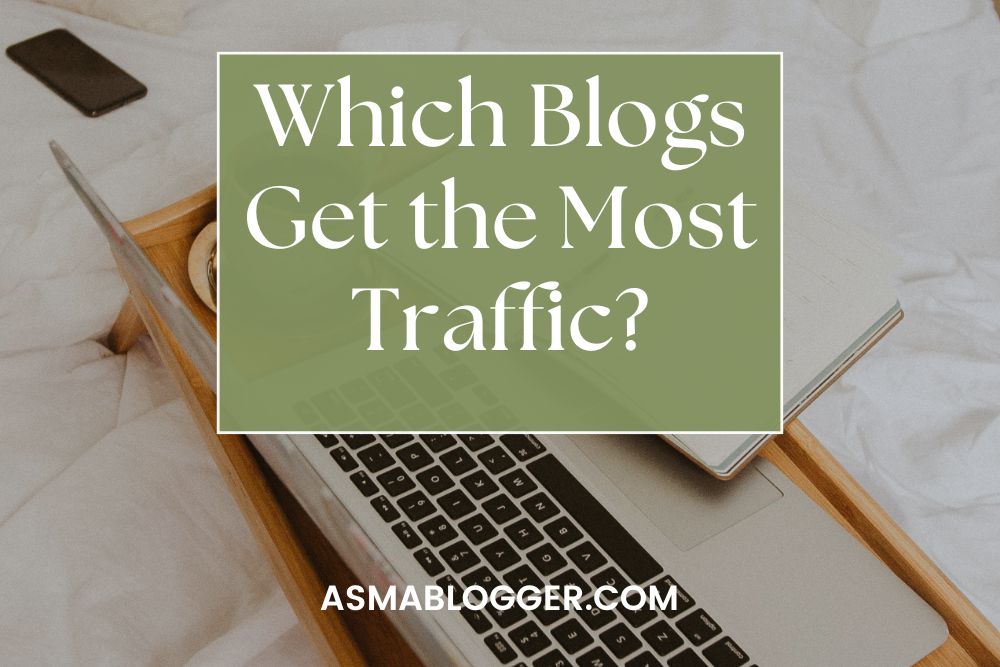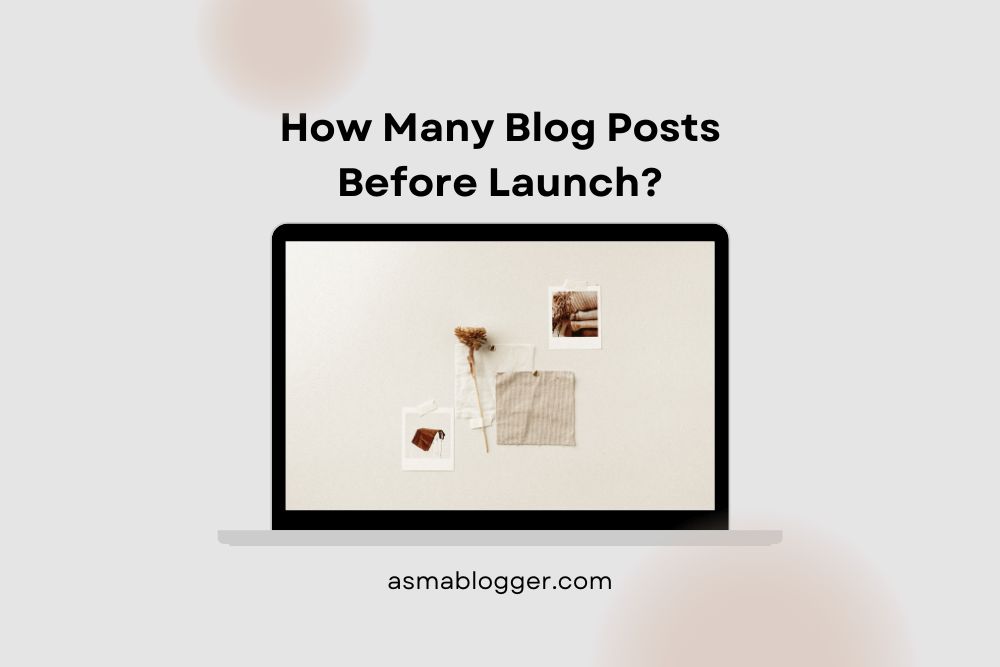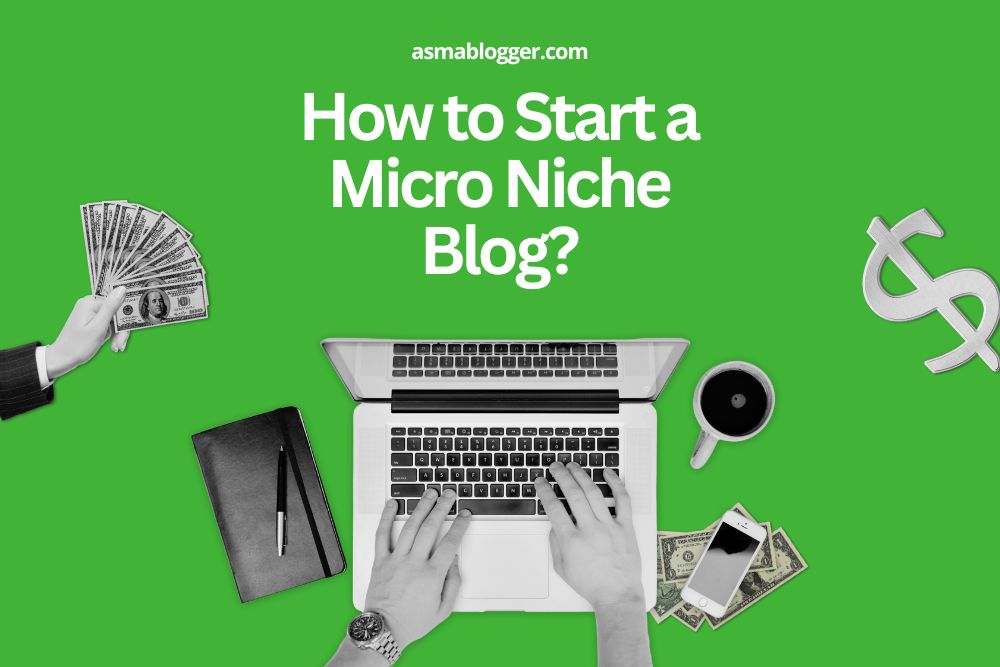In 2025, businesses with blogs will generate 67% more leads than those without. Blogging is more than just words on a page—it invests in visibility, trust, and revenue! But How Much Does a Blog Article Cost? The writer’s experience and SEO needs influence the cost of blog articles. Whether you’re a small business owner or content strategist, understanding pricing trends is essential for effective planning. In this article, I’ll break down costs, explore pricing models, and share tips on choosing the right writer. Let’s dive in and make every dollar count!
Table of Contents
ToggleFactors That Influence Blog Article Costs
1. Writer Expertise and Experience
I wondered why some writers charged so much more when I started writing. It turns out that newbies might charge a few cents per word, but the quality often matches the price. Experienced writers, especially those skilled in SEO or technical topics, can charge $0.25 to $1 per word—and they’re worth it.

I’ve seen clients spend more fixing cheap, poorly written content in fields like healthcare or SaaS, where accuracy is key and expertise matters.
- Tip from Experience: Don’t just pick a writer based on price. Look at their portfolio and see if they’ve tackled similar topics before. The extra cost upfront often saves headaches later.
- A Tangent Worth Mentioning: One client of mine once said, “I didn’t think anyone could write engagingly about coverage claims,” but after they invested in a specialist, their blog traffic shot up.
2. Article Length and Complexity
The question of ideal blog length comes up a lot. Shorter blogs, around 500 words, work for quick updates but rarely rank well on Google. A well-researched, SEO-friendly blog of 1,200-1,500 words often delivers more value, though it does cost more.
Complexity also plays a role. Simple topics like organizing your desk are quicker to write, but detailed guides, like setting up a CRM, require hours of research and editing—explaining the higher price.
- Pro Tip: Don’t skimp on quality or length if investing in SEO content. Articles that dive deep into a topic rank better and keep readers on your site longer.
Blog Article Pricing Models
Here is a quick look at the common models and some insights I have learned.
1. Per Word and Hour Pricing
Per Word Pricing:
This model is simple and often used by freelancers and agencies alike. Rates can range widely—from $0.05 for beginner writers to $1 or more for seasoned experts.
For instance, paying $0.10 per word means a 1,000-word article costs $100. It’s straightforward, but here’s the catch: longer doesn’t always mean better. A concise, impactful 500-word post might outshine a fluffy 1,500-word one.
Hourly Pricing:
Then there’s hourly billing. This one is common for writers tackling complex or research-heavy topics. Rates typically hover around $15-$35 per hour for general writers, but niche experts—like a tech guru or medical writer—can command $100+ per hour.
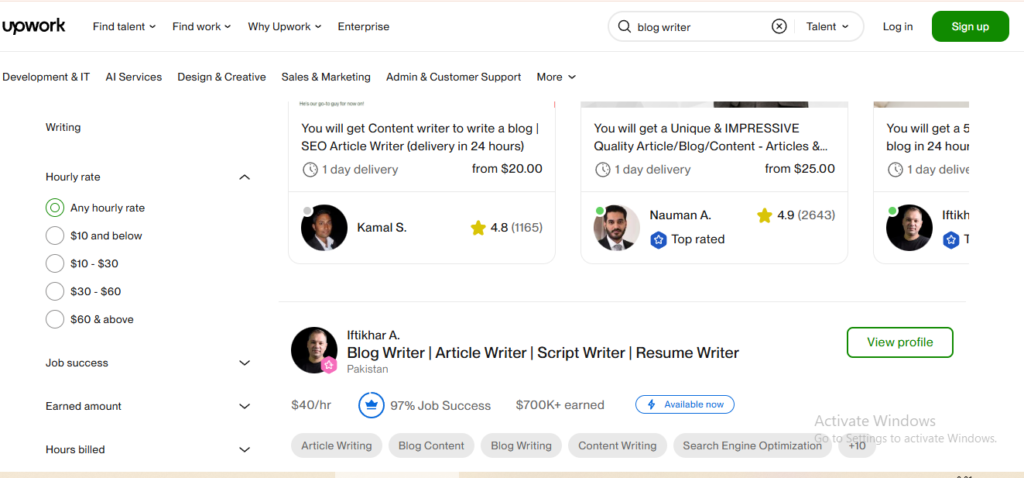
You can also check out Upwork to hire blog writers on an hourly basis.
2. Flat Rate and Subscription-Based Pricing
Flat Rates:
This model is about clarity—one price per article, no surprises. For example, you might pay $200 for a 1,000-word post, including one round of edits. It’s great for budgeting, but you’ll want to ensure the rate reflects the writer’s expertise.
Opting for a “budget-friendly” flat-rate piece might seem appealing, but it can often lead to time-consuming revisions due to quality issues. Investing in higher-quality content upfront is usually more cost-effective in the long run.
Subscription or Bulk Pricing:
Subscription models are invaluable if you need regular content. Think of packages like four blog posts per month for $800. These deals often include perks like SEO optimization or even content strategy.
A bulk option can save money long-term, but make sure the writer or agency is consistent. I’ve seen brilliant first drafts and mediocre follow-ups from the same provider—talk about frustrating!
3. Tips to Choose the Right Pricing Model
- Start with your goals: Need a quick, budget-friendly post? Per-word might work. Building a long-term content strategy? Subscription plans are gold.
- Consider expertise: High rates often equal higher quality, especially for niche industries. A well-researched $300 article might drive more traffic than three $100 ones.
- Factor in extras: Does the price include SEO, revisions, or images? These can add huge value and save you time.
Ultimately, the answer to “How Much Does a Blog Article Cost?” depends on your unique needs. Investing wisely in high-quality content can elevate your brand and yield long-term results.
How Much Does a Blog Article Cost? How to Evaluate the Value of a Blog Article
1. Quality Metrics to Look For
Assessing a blog’s value isn’t just about page views or impressions. I’ve learned to focus on key metrics that truly matter. Here’s what I track now.
- SEO Performance: This is crucial. How well does your article rank for relevant keywords? If it’s buried on page 5 of Google, no matter how great the content is, it’s not doing much for you. Check your content progress using tools like Google Analytics or SEMrush, as well as your rankings, and discover areas where you can improve.
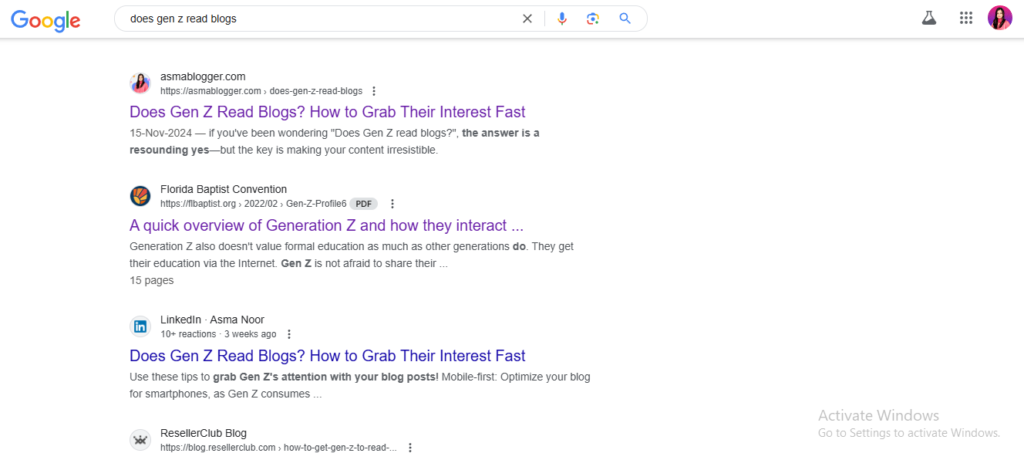
- Backlinks: A blog post that receives multiple high-quality backlinks from trusted websites is a powerful indicator of its authority. When other sites link to your content, Google takes notice. It’s like receiving a vote of confidence in your expertise. I’ve seen articles shoot up in search rankings once they get a few solid backlinks.
- Engagement: Are people engaging with the article? Look at comments, shares, and the time readers spend on the page. The longer they stay, the better.
2. ROI of Investing in High-Quality Content
Unlike the fleeting impact of paid ads, blogs continue to provide value over time. You might not see immediate results, but the benefits grow steadily with patience.
- Long-Term Traffic: Websites with a blog get 434% more indexed pages. This means more opportunities for your content to show up in search results. If you’re patient and consistent with blogging, those articles will keep bringing in traffic month after month.
- Lead Generation: It’s not just about traffic. A well-written blog post can generate leads. Companies that maintain a blog tend to see a 67% increase in lead generation compared to those that don’t. Those leads can translate into paying customers over time, especially if you drive the right traffic with solid content.
- Cost vs. Value: Sure, you’re paying for content creation, but the return is often much higher. I’ve found that a single blog can generate more revenue than it costs to produce if done right. Take a blog that costs $150 to create—it could bring in $1,500 in sales if promoted properly. That’s a 350% ROI, which is pretty impressive.
Related Posts: How to Build a Blog Following? Expert Tips
How to Promote Your Blog Without Social Media: Tested Strategies
Tips for Choosing the Right Blog Writer
Finding the right blog writer takes effort, but it’s worth it. You may struggle to find someone skilled, affordable, and aligned with your goals. Here are a few tips from my experience.
1. Find Writers Within Your Budget
- Know your limits: Set your maximum and minimum budget range.
- Quality over quantity: A cheaper writer may not give you the quality you need. Sometimes, spending a bit more yields better results in the long run.
- Ask for samples: Writers often have portfolios or samples of their previous work. Look through them to assess their style and quality.
- Consider long-term costs: Sometimes, paying a bit more upfront can save you time and money in the long run if the writer delivers high-quality, ready-to-publish content.
It can be frustrating when you can’t find someone in your price range, but keep searching! Be open to negotiating or considering slightly higher bids for better quality.
2. Setting Clear Expectations and Goals
Once you’ve narrowed your list, ensure you’re both on the same page. Trust me, clear communication is key. If you don’t clarify what you want, you’ll probably end up with content that misses the mark.
- Be specific: Tell them exactly what you’re looking for, whether it’s tone, style, or focus. The more details, the better.
- Set deadlines: Ensure the writer knows how quickly you need the work done.
- Provide a brief or outline: Giving the writer a clear brief or outline will help them understand your needs and structure the content accordingly.
- Give examples: If there’s a particular type of content you like, provide them with examples to help guide the writer.
How Much Does a Blog Article Cost: Average Costs of Blog Articles in 2025
Blog article pricing in 2025 varies. A basic 500-word article costs $25 to $150. Expect to pay $75 to $200 for a 1,500-word piece. In-depth content (2,000+ words) may start at $100-$500.
- Writer experience: Newer writers may charge as low as $0.05 per word, while experienced ones can go up to $0.20 per word.
- Length of the article: Longer articles require more time and research, which makes them pricier.
- Topic complexity: Highly technical or niche topics often cost more.
- SEO optimization: If SEO is involved, you may expect additional charges.
1. Pricing Trends Across Industries
Pricing for blog articles varies greatly across industries.
For example, a tech blog article tends to be more expensive due to the specialized knowledge required.

On the other hand, a lifestyle or fashion blog might cost less, but the need for SEO and research still affects the price.
In my experience, investing in quality content is always a good idea in competitive industries. It might cost more upfront, but the traffic, leads, and brand authority return can be well worth it.
2. Budgeting Tips for Small Businesses
As a small business owner, cutting corners regarding content is tempting, but trust me, that strategy can backfire. Here are some budgeting tips that will help keep you on track:
- Clarify your objectives and target audience: Clarify if your objective is to boost brand visibility, generate leads, or enhance SEO, and adjust your budget to reflect these priorities.
- Calculate ROI and Set a Budget: Estimate the traffic or leads your blog will generate. A solid ROI helps you ensure that your content investment is worth it.
- Mix of In-House and Freelance Writers: I’ve found that a mix works best. You get the consistency of in-house content plus the flexibility and expertise of freelancers for niche topics.
- Cost-Saving Measures: Repurpose content into different formats like videos or social media posts. You can also explore guest blogging for free content and develop a content calendar to stay on track.
Final Reflections on How Much Does a Blog Article Cost in 2025
Understanding “How Much Does a Blog Article Cost” is vital for making informed decisions about your content strategy. The cost can vary based on expertise, length, and research, so always align your budget with your goals. Evaluate your business needs to identify the most effective approach. Content that is of high quality is essential for capturing your audience’s attention and gaining their trust. Have insights or tips? Share them in the comments below! If you’re looking for professional, Personalized blog writing services, you can hire me to create impactful content for your brand.
How Much Does a Blog Article Cost: FAQ
Can I use AI to write a blog?
Absolutely! AI can be a great tool for brainstorming ideas, drafting content, or even speeding up the writing process. But here’s the thing: you can’t just rely on it to do everything. Make sure you review and personalize the content to fit your voice. Google loves helpful, people-first content, so as long as your AI-generated posts are original and informative, they can work wonders for your blog! You can also check my guide: How to Write Blog Posts as a Non-Writer: Quick & Easy Guide

